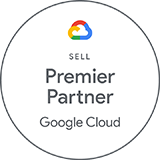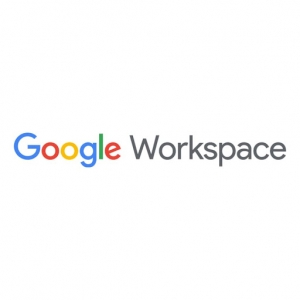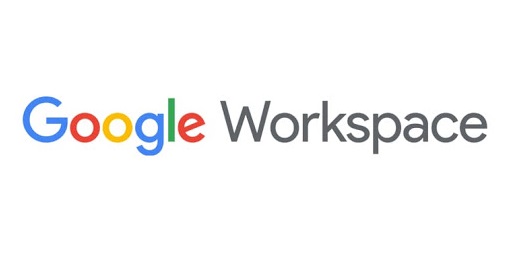Cumulus Global Offers Easier Public Sector Cloud Purchasing
![]()
Cumulus Global Offers Easier Public Sector Cloud Purchasing
Participation in multiple, national, cooperative purchase programs to save schools and local governments time and money.
Cumulus Global proudly announces that schools and local governments can now purchase Google Workspace, other cloud services, and related professional services via one of four national cooperative purchasing programs. By participating in these programs, Cumulus Global services and solutions are now available with simplified bidding and quoting processes. Local governments and school systems will save time and money.
“This is a big step forward for Cumulus Global and our public sector customers,” stated Cumulus Global CEO Allen Falcon. “If we can quote cloud and professional services without extensive bidding and RFP processes, we save time and money.”
By participating in multiple procurement associations, Cumulus Global is more likely to find a match with schools and governments for managed cloud solutions. They can use any of the four procurement vehicles to which they belong: Equalis Group, National Cooperative Purchasing Alliance (NCPA), OMNIA Partners, or PEPPM Cooperative Purchasing.
“We are meeting governments and school districts where they are,” noted Falcon. “Chances are, we are in a program that your school or local government can use.”
As part of the company’s commitment to added value, the company is transparent with respect to program participation fees. The company will share and pass through these fees as-is, without markups. Local governments and schools interested in learning more can schedule an introductory call with a Cumulus Global Cloud Advisor.
About Cumulus Global
Managed Cloud Services for Small and Midsize Businesses, Governments, and Schools
Cumulus Global (www.cumulusglobal.com) is an industry-leading managed cloud service provider with a mission to deliver solutions with tangible value.
- What We Do: We translate your business goals and objectives into solutions and services.
- How We Do It: We start with your business needs and priorities. Planning and migration includes guidance to help your team adopt and utilize new services. Your team benefits from co-managed services, ongoing support, and client success services that help you adapt as your business changes and grows.
- What We Offer: Managed cloud solutions featuring Google, Microsoft, and more than three dozen providers.
For more information, schedule a no-obligation introductory meeting with a Cloud Advisor.


 Allen Falcon is the co-founder and CEO of Cumulus Global. Allen co-founded Cumulus Global in 2006 to offer small businesses enterprise-grade email security and compliance using emerging cloud solutions. He has led the company’s growth into a managed cloud service provider with over 1,000 customers throughout North America. Starting his first business at age 12, Allen is a serial entrepreneur. He has launched strategic IT consulting, software, and service companies. An advocate for small and midsize businesses, Allen served on the board of the former Smaller Business Association of New England, local economic development committees, and industry advisory boards.
Allen Falcon is the co-founder and CEO of Cumulus Global. Allen co-founded Cumulus Global in 2006 to offer small businesses enterprise-grade email security and compliance using emerging cloud solutions. He has led the company’s growth into a managed cloud service provider with over 1,000 customers throughout North America. Starting his first business at age 12, Allen is a serial entrepreneur. He has launched strategic IT consulting, software, and service companies. An advocate for small and midsize businesses, Allen served on the board of the former Smaller Business Association of New England, local economic development committees, and industry advisory boards.
 Christopher Caldwell is the COO and a co-founder of Cumulus Global. Chris is a successful Information Services executive with 40 years experience in information services operations, application development, management, and leadership. His expertise includes corporate information technology and service management; program and project management; strategic and project-specific business requirements analysis; system requirements analysis and specification; system, application, and database design; software engineering and development, data center management, network and systems administration, network and system security, and end-user technical support.
Christopher Caldwell is the COO and a co-founder of Cumulus Global. Chris is a successful Information Services executive with 40 years experience in information services operations, application development, management, and leadership. His expertise includes corporate information technology and service management; program and project management; strategic and project-specific business requirements analysis; system requirements analysis and specification; system, application, and database design; software engineering and development, data center management, network and systems administration, network and system security, and end-user technical support.

 Bill is a Senior Cloud Advisor responsible for helping small and midsize organizations with cloud forward solutions that meet their business needs, priorities, and budgets. Bill works with executives, leaders, and team members to understand workflows, identify strategic goals and tactical requirements, and design solutions and implementation phases. Having helped over 200 organizations successfully adopt cloud solutions, his expertise and working style ensure a comfortable experience effective change management.
Bill is a Senior Cloud Advisor responsible for helping small and midsize organizations with cloud forward solutions that meet their business needs, priorities, and budgets. Bill works with executives, leaders, and team members to understand workflows, identify strategic goals and tactical requirements, and design solutions and implementation phases. Having helped over 200 organizations successfully adopt cloud solutions, his expertise and working style ensure a comfortable experience effective change management.  On February 11, 2023, Google provided sixty (60) days notice of a Google Workspace fee increase across most licenses. For many customers, this increase is coming immediately after increased fees related to the transition from G Suite to Google Workspace.
On February 11, 2023, Google provided sixty (60) days notice of a Google Workspace fee increase across most licenses. For many customers, this increase is coming immediately after increased fees related to the transition from G Suite to Google Workspace.
